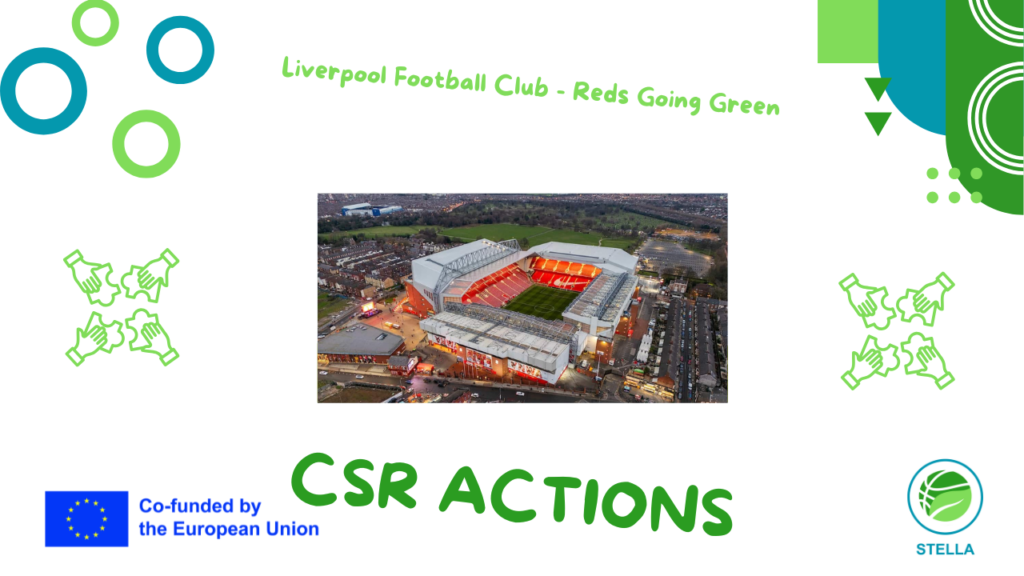
Liverpool has one of the largest football clubs in the world and is committed to promoting sustainability as one of their core values. In order to promote environmental sustainability, a series of policies and measures have been implemented, ranging from infrastructural changes to the facility’s energy and water use as well as recycling programs.
Objectives:
In line with the core values and intentions of ‘Reds Going Green’, a number of objectives are set.
- Minimise the environmental impact of the club’s operations
- Water smart solutions
- Use of renewable energy to power facilities
- Mitigate waste and promote circularity and recycling processes
- Utilise energy-smart solutions to reduce energy use, such as through the use of low-energy lighting.
Description of the project:
The sustainability initiatives for ‘Reds Going Green’ have two main categories. The first relates to infrastructural changes such as the installation of solar panels on the roof and the utilisation of low-energy lighting to reduce the carbon footprint of the Liverpool facilities. Furthermore, water drainage solutions and waterless urinals also contribute to a reduction in water use. The second category is an initiative that is much more replicable for youth organisations and youth workers, namely waste reduction, recycling and reusing programs.
Impacts & Results:
As a result of the ‘Reds Going Green’ there have been several beneficial impacts on environmental sustainability. Due to the incorporation of solar panels, low-energy lighting and water-smart solutions, C02 emissions, as well as water consumption, have decreased considerably. Furthermore, for the waste reduction and recycling strategies, over 55 per cent of waste is recycled.
Conclusion & suggestion for youth workers:
The case of the ‘Reds Going Green’ showcases how sustainability initiatives can be incorporated into multiple layers of an organisation’s operations and facilities. Whilst infrastructural actions are rarely an alternative for youth organisations and workers, there are still lessons to utilise. Implementing energy-smart lighting can be incorporated into work facilities and offices, with limited costs. Similarly for water and waste, by providing reusable water bottles and refilling stations as well as recycling stations – low-cost high-impact contributions to sustainable development can be implemented.
.
